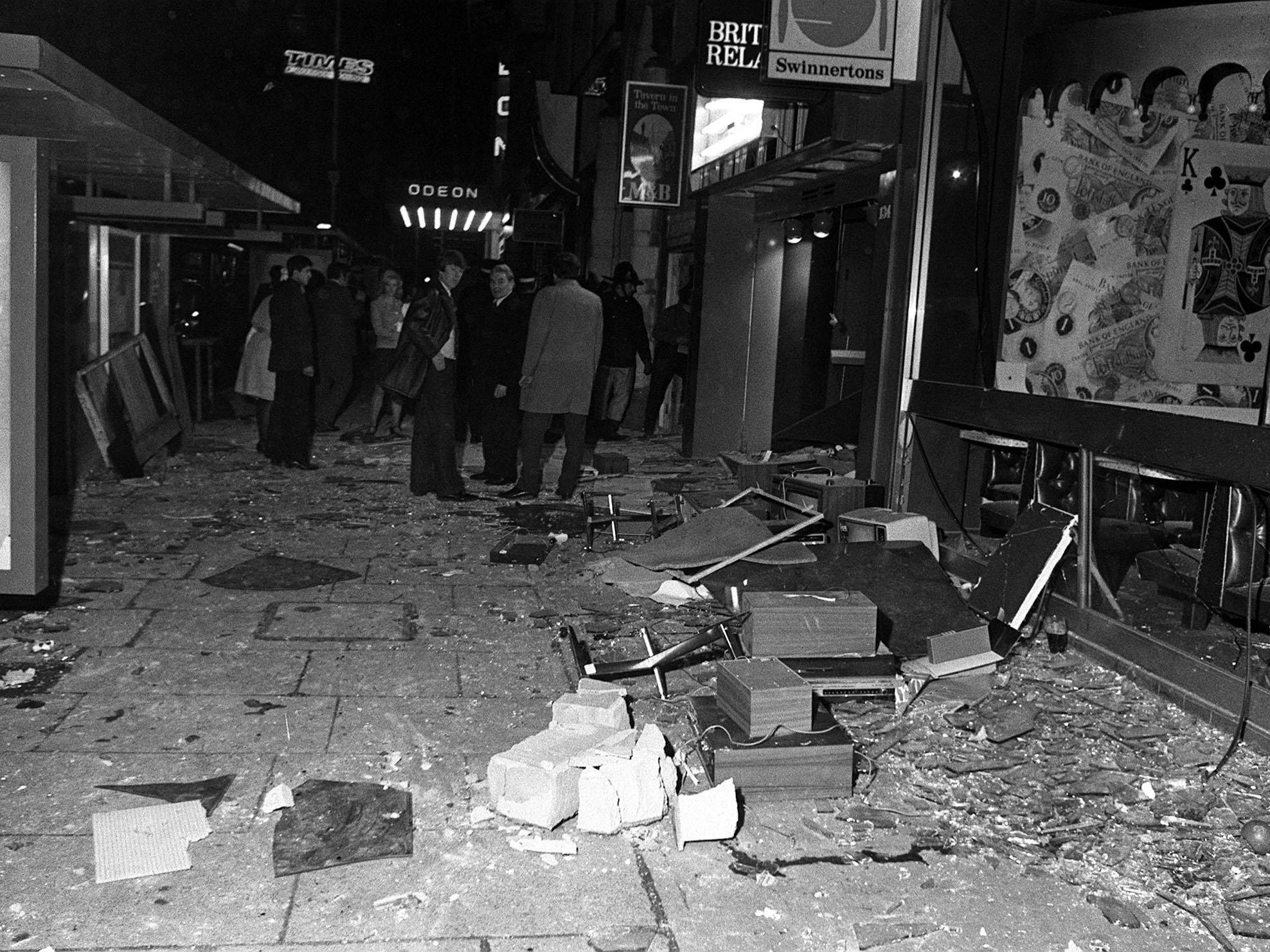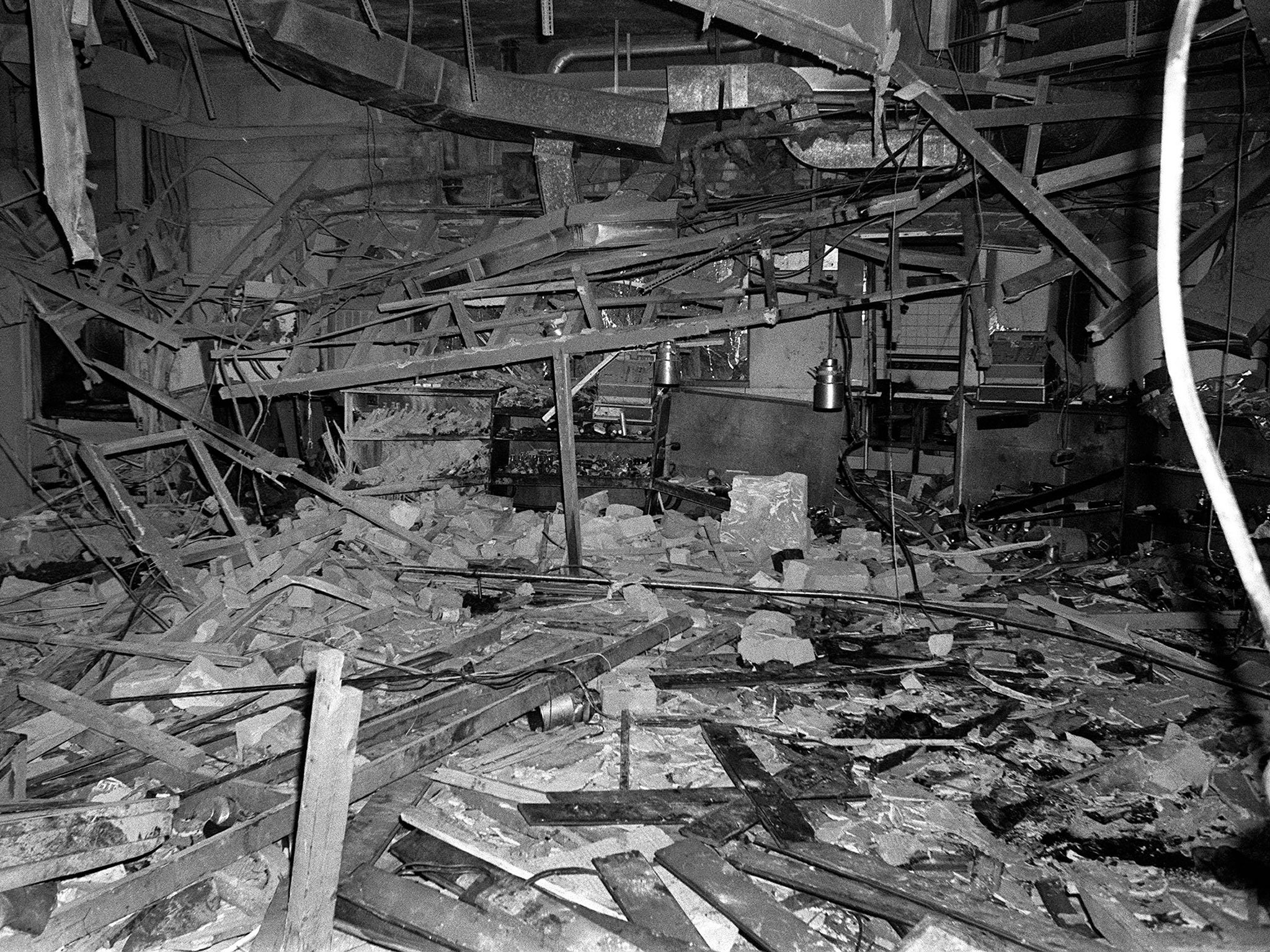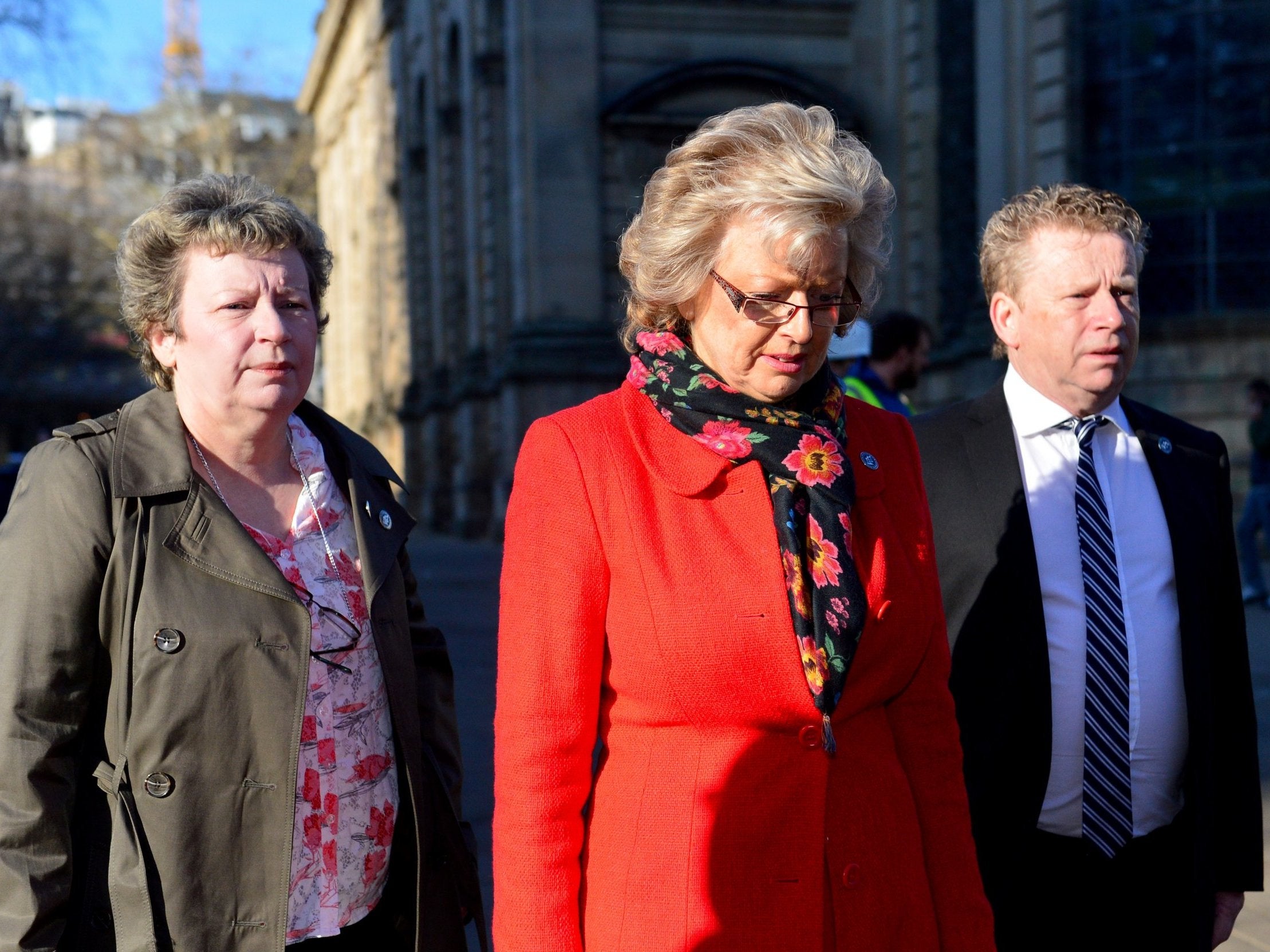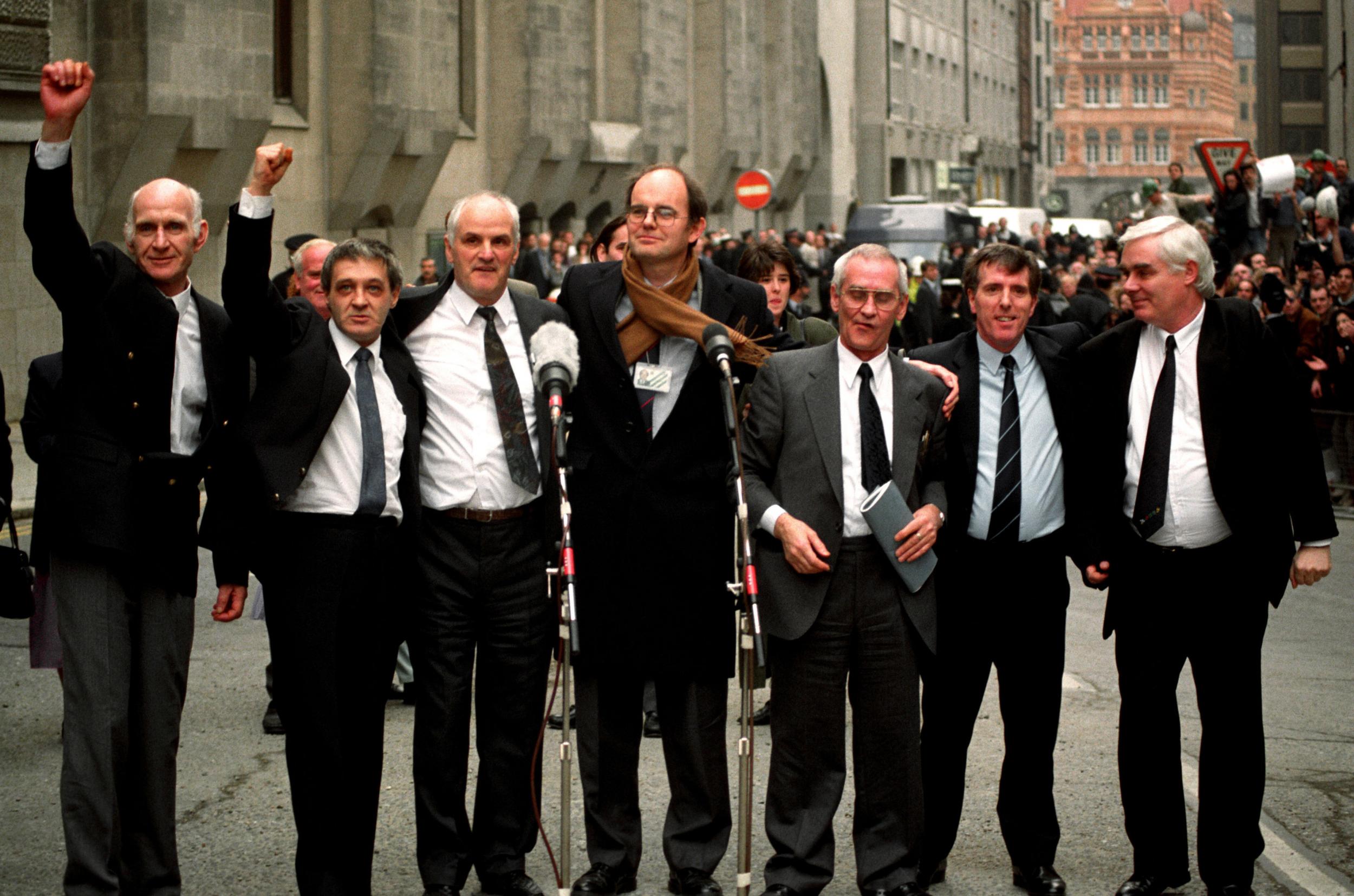Birmingham pub bombings: IRA unlawfully killed victims of 1974 attacks, inquest finds
A total of 21 people died and 220 others were injured in the ‘pure carnage’ created when a pair of massive explosions ripped apart two pubs on the night of 21 November 1974

The jury hearing inquests into the deaths of the 21 people killed in the 1974 Birmingham pub bombings has found the victims were unlawfully killed in an IRA terror attack.
The verdict prompted relatives of the victims to demand that those responsible for the bombings who are still alive be prosecuted for murder.
In its verdict, the jury also said that a botched warning call by the republican paramilitary organisation, which carried out the attacks, further caused or contributed to the 21 deaths.
The 11 jurors unanimously determined that the inadequate warning call cost stretched police vital minutes.
The hearings were held as Article 2 inquests, examining whether the British state or its agents failed to adequately protect the victims.
The jurors found there was “not sufficient evidence” of any failings, errors or omissions in the way West Midlands Police responded to the warning call, or in regards to the handling of two alleged tip-offs which were claimed to have given the force earlier warning of the blasts.
Qualifying the jury findings in relation to the police’s response, the foreman told the court: “The decision was based on the balance of the evidence provided.”
Coroner Sir Peter Thornton QC had directed the jurors to find that the victims were “unlawfully killed”.
But they were also told to answer specific questions, including about the adequacy of the coded bomb warning given by the attackers, the police’s response to the call, and whether the authorities were tipped off about the bombings.
On the night of 21 November 1974, two massive explosions caused what one witness described as “pure carnage”, ripping apart the packed Tavern in the Town and Mulberry Bush pubs in Birmingham, killing 21 people and injuring 220 others.
A third bomb planted at Barclays Bank in Hagley Road, a mile away, failed to go off.
After the verdicts were delivered, Sir Peter, the former chief coroner for England and Wales, said: “The atrocities of the night of Thursday 21 November 1974 are now etched in the history of Birmingham.
“Those dreadful events will never be forgotten because the people of Birmingham will never forget the 21 lives that were tragically lost.”
The evidence during the six-week inquest included testimony from a convicted ex-IRA bomber, the police on duty that night, rescuers and survivors.
There was a dramatic twist towards the end of evidence at the hearings, when a former IRA member named four people he claimed were involved in the bombings.
The man, identified in court only as “Witness O”, said he had been authorised to give the four names by the current head of the IRA in Dublin.
Mick Murray, who died in 1999, is said to have called in the bomb warning at 8.11pm to newspaper telephonist Ian Cropper, giving the code word “Double X”.
However, jurors heard that the warning had only given the locations as the landmark Rotunda building and the nearby tax office in New Street, making no mention of pubs.

In his evidence to the inquests, the then IRA head of intelligence in Ireland, Kieran Conway, described the victims’ deaths as “accidental”, in an “IRA operation that went badly wrong”.
Jurors heard that Birmingham city centre had been “denuded” of police after officers were pulled away to bolster security for IRA bomber James McDade’s funeral procession in Coventry.
There were just 15 officers covering the whole of the city centre.
One of the first on the scene, retired PC Derek Bradbury, said: “We were told it was the Rotunda”, and he and colleagues’ first thought had been to clear the office block.
There was no evacuation of the Mulberry Bush pub, located around the side of the Rotunda’s base, where eight people died.
Nor was there any attempt to clear the surrounding area, or cordon off the street, which was still open to traffic.
Best friends Neil “Tommy” Marsh, 16, and Paul Davies, 17, two of the youngest victims that night, were right outside the Mulberry Bush when the bomb went off, while a double-decker bus full of passengers was peppered with shrapnel from the blast.
PC Bradbury said a perimeter would have been “a brilliant idea” if you had the numbers, but there were “not enough” officers sent to the scene to do it.
The inquests also heard evidence of possible forewarnings of the bombings, including a conversation about a forthcoming attack between IRA inmates allegedly overheard in prison, and another in a pub where a customer heard men with Irish accents discussing “bangs”.
Ex-IRA man Witness O also claimed that, while still a prisoner, he told detectives soon after the bombings that Seamus McLoughlin had planned the attacks, but he heard nothing more. McLoughlin died in 2014.
Former MP Chris Mullin, meanwhile, was called a “disgrace” by Julie Hambleton, the sister of one victim, when he refused to name any of the still-living bombers during his evidence.
Jurors also heard that key evidence is missing or was never collected.
The third unexploded bomb has been misplaced and West Midlands Police’s force control room call tapes from the night were recorded over.

Only limited written records still exist of the police’s response on the night, including just three 999 logs, despite witness statements referring to “numerous” calls being made.
CCTV from the lobby of the Rotunda, which may have shown the bombers passing by, was never collected or even viewed by police, according to evidence from the former building manager.

The inquests, which were held at the civil courts building in Birmingham, came about after years of campaigning by relatives of the dead for a full account into the circumstances of what happened that night.
The pub bombings were the deadliest post-Second World War attack on the British mainland, until the 7/7 London terrorist attacks in 2005.
A botched investigation by West Midlands Police led to the 1975 convictions of the Birmingham Six, but their convictions were quashed by the Court of Appeal in 1991.
Julie Hambleton, who lost her older sister Maxine in the bombings, said before the hearings that bereaved families wanted “truth, justice and accountability”.
Speaking on behalf of relatives after the verdict, she called for those responsible for the bombings who were still alive to be prosecuted.

Ms Hambleton said: “Today is the day for West Midlands Police’s senior officers, Dave Thompson the chief constable – we now put it in his court, the Garda’s court in Ireland, and also at the PSNI’s door – for them to go ahead and prosecute those who remain living, to charge them with murder. Twenty-one of our loved ones went out one evening to meet friends and family and they never saw the light of day again.
“Today the inquest has found they were unlawfully killed.”
Speaking later, Dave Thompson, chief constable of West Midlands Police, described the pursuit of any suspects in connection with the bombings as “a very active investigation”.
Asked if, as was suggested in the inquest, the Good Friday Agreement had blocked any realistic prospect of bringing the killers to justice, he said it would not prevent that process.
He said: “This is simply about the evidence. The criminal investigation will take the direction it is going to take.
“We will bring people to justice within our ability to do that. I don’t see anything in terms of any political arrangement that prevents us carrying out that enquiry.”
Bookmark popover
Removed from bookmarks